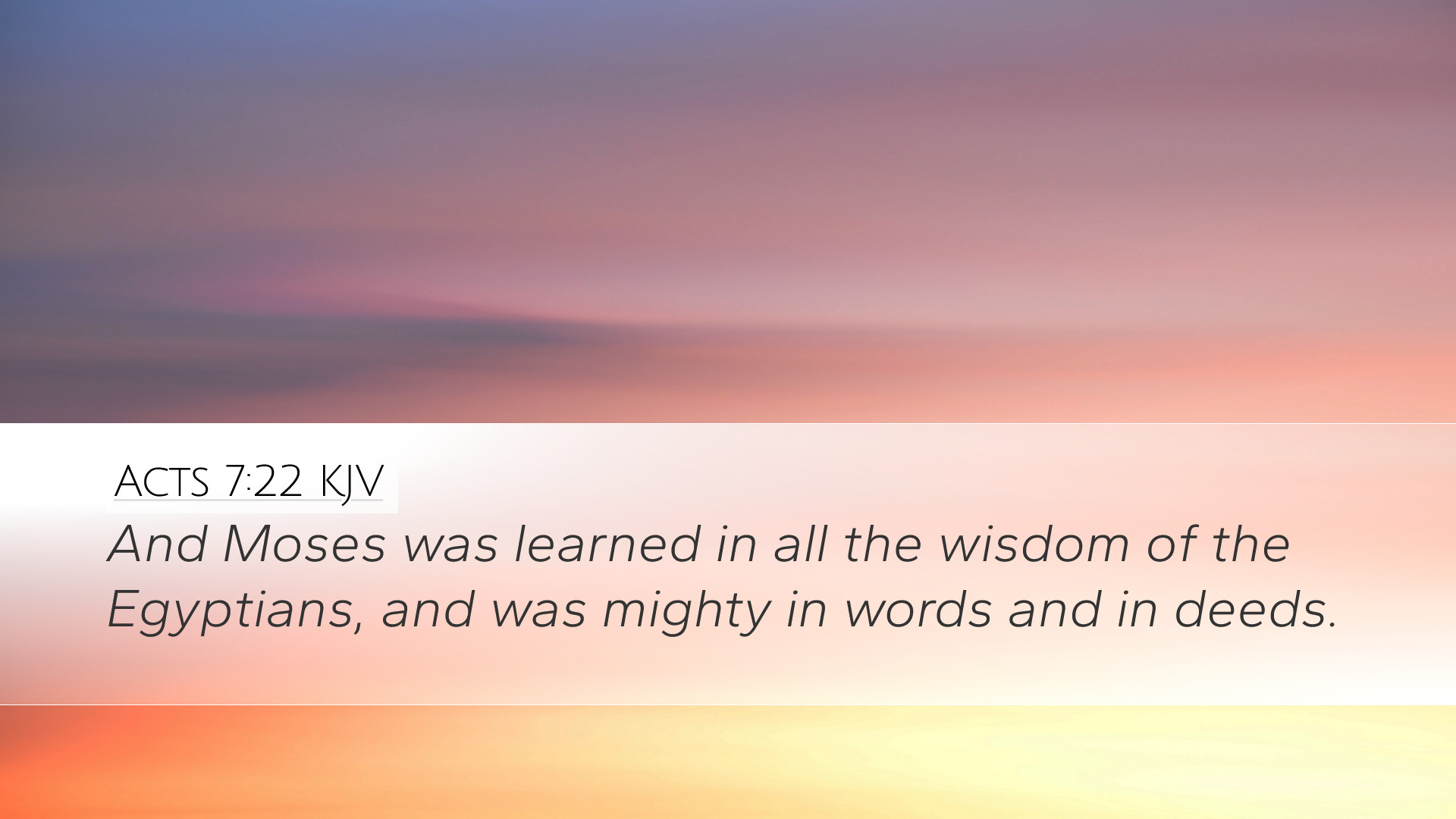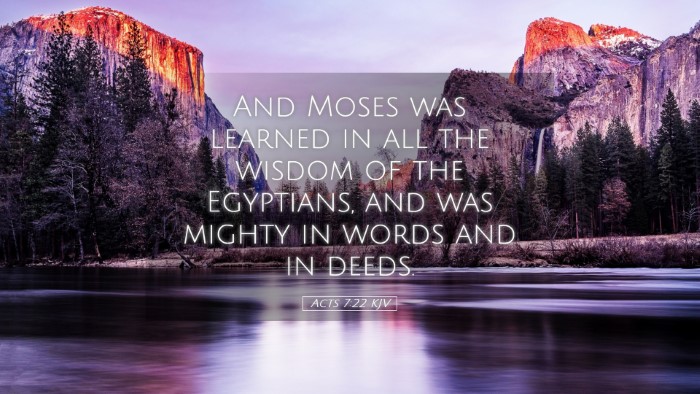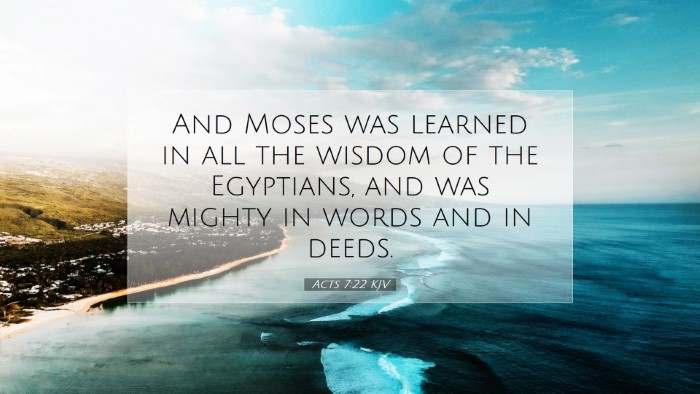Commentary on Acts 7:22
Acts 7:22 states: “And Moses was learned in all the wisdom of the Egyptians, and was mighty in words and in deeds.”
This verse highlights significant aspects of Moses' early life and development, showing his preparation for the pivotal role he would later play in leading the Israelites.
Moses' Education and Upbringing
Moses' life begins with a foundation in Egyptian culture and education. The remark that he was “learned in all the wisdom of the Egyptians” indicates not just an academic training but also the assimilation of military, political, and philosophical wisdom. This fact underlines the sovereignty of God in preparing Moses for his future tasks.
- Matthew Henry: Henry comments that Moses’ education emblemizes the providential preparation God orchestrated for his servant. The wisdom of Egypt symbolizes not only secular knowledge but also strategic military training fitted for leadership.
- Albert Barnes: Barnes points out that the term “wisdom” encompasses both knowledge and skill, referring to what was valued highly in Egyptian society. Moses' Egyptian heritage positioned him perfectly to understand both the oppressor’s culture and the needs of his people.
- Adam Clarke: Clarke emphasizes that Moses' learning equipped him to interact with Pharaoh and the Egyptian court effectively, making his future role in confronting Pharaoh more authoritative and compelling.
The Significance of “Mighty in Words and Deeds”
The description of Moses as “mighty in words and deeds” implies that he was not only knowledgeable but also capable of decisive action. This duality is essential for a leader, especially one chosen by God to lead the Israelites out of bondage.
- Matthew Henry: He notes that this strength in speech and action would become crucial when Moses stands before Pharaoh, demanding the release of the Israelites. Henry asserts that God often chooses those who have been equipped with natural abilities to fulfill His purposes.
- Albert Barnes: Barnes expands on this idea by stating that Moses’ eloquence and competence were manifest during significant encounters with the Egyptians, especially when addressing their authorities. His capacity for leadership was innate, enhanced by his Egyptian training.
- Adam Clarke: Clarke further elaborates by suggesting that Moses’ skill was multifaceted, indicating that he was both an effective orator and a capable military leader. These qualities would be tested in his later life.
The Role of Heritage in Divine Mission
Moses’ heritage as an Israelite raised in the Egyptian royal household draws attention to God’s providence in using unexpected circumstances for His divine plans. Understanding this dynamic presents an important theological reflection for pastors and scholars.
- Matthew Henry: He highlights how God's choice of Moses from a seemingly privileged background illustrates that leadership can emerge from various contexts, suggesting that one's origin does not dictate one’s ability to serve God.
- Albert Barnes: Barnes interprets this dual heritage as a purposeful strategy by God – to prepare Moses in positions that would later serve his people well. His unique standing opened doors that would remain closed to others.
- Adam Clarke: Clarke connects Moses’ Egyptian upbringing with his effectiveness in leadership. He notes that leaders can often relate better to different cultural contexts, allowing them to serve diverse groups effectively.
Theological Implications for Today
This verse encourages current leaders to recognize that God prepares individuals for their ministries in manifold ways, sometimes through life experiences that may appear secular or unrelated to spiritual tasks.
- It emphasizes the importance of cultural competence in ministry, illustrating that understanding diverse contexts enables better ministry strategies.
- This verse serves as a reminder that God can use anyone, regardless of background or education, to accomplish His purposes. Thus, church leaders should foster environments where diverse talents are recognized and cultivated.
- The dual gifts of communication and action, sealed by divine calling, should be sought after in leaders today. Aspiring pastors and theologians can learn and derive motivation from Moses' example of preparation and competence.
As Acts 7:22 illustrates, God’s divine preparation often manifests itself in unexpected ways, equipping leaders with knowledge, wisdom, and experience crucial for fulfilling their God-given missions. As church leaders and scholars reflect upon this verse, they are encouraged to embrace their backgrounds, recognizing that all experiences can serve God’s greater purpose in the kingdom.


